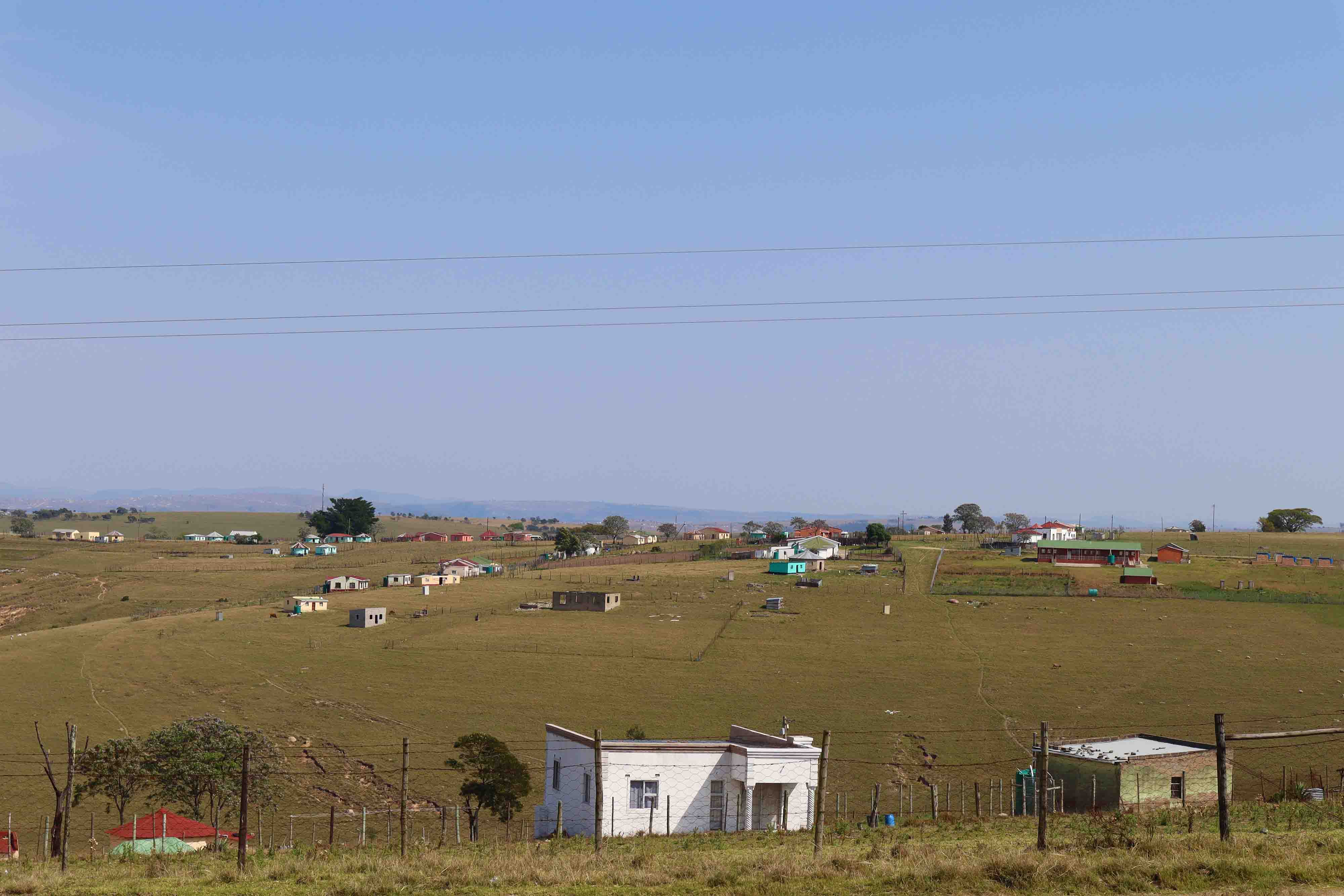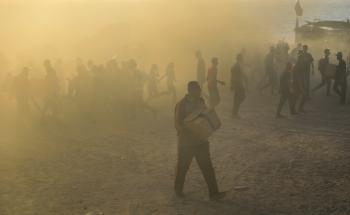
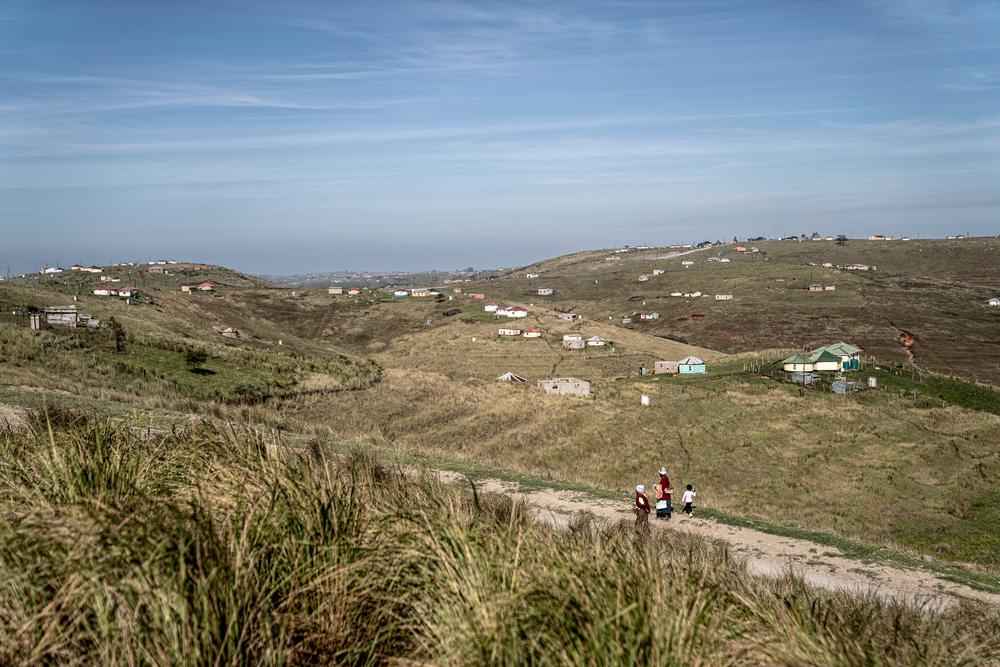
South Africa
To ensure an integrated approach for all non-communicable diseases (NCDs), efficient use of resources, collective advocacy, and full community involvement, in 2024, MSF partnered with other humanitarian and health-focused NGOs in Amathole, where our project for non-communicable diseases is located, to form the Amathole District Partners forum, a platform where we can develop joint strategies.
MSF teams were also a key partner in an exercise assessing the country’s capacity to prevent, detect, and respond to public health emergencies, and to strengthen the health security system, which was successfully completed in the last quarter of 2024.
Featured
Our activities in 2024 in South Africa
Data and information from the International Activity Report 2024.
42
42
€1.9 M
1.9M
1999
1999
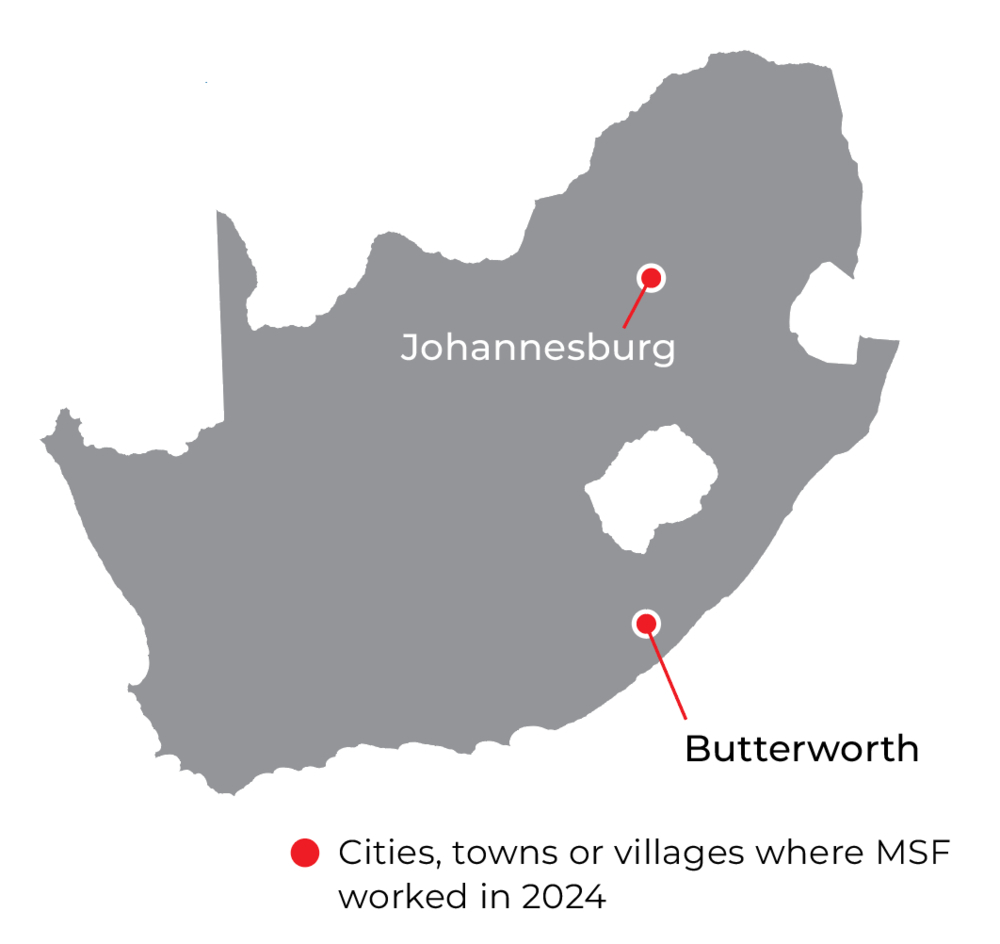
Since 2022, MSF has been running a non-communicable diseases (NCDs) project in Butterworth, Eastern Cape province. With the Department of Health, MSF provided training on hypertension and diabetes to nurses, community health workers, and data entry clerks in Mnquma subdistrict. Following the training, we donated vital signs monitors and digital scales with stadiometers to health facilities, and closely supported healthcare facilities, with improvements to infrastructure and logistics. We also conducted health education training for community-based organisations, and ran health promotion sessions on NCDs in the community and through social media and radio.
The Department of Health approved three external pick-up points for medication, which MSF equipped. Pick-up points are managed by independent healthcare providers, who dispense the medication free-of-charge to patients, on behalf of the government.
To ensure an integrated approach for all NCDs, efficient use of resources, collective advocacy, and full community involvement, MSF partnered with other humanitarian and health-focused NGOs in Amathole, where our project for non-communicable diseases is located, to form the Amathole District Partners forum, a platform where we can develop joint strategies.
In 2024, we trained Department of Health staff in digital health promotion to equip them with the skills to respond to disease outbreaks. Following the training, we supported the launch of a two-week digital campaign to raise awareness of mpox, which reached millions of people.
We were also a key partner in an exercise assessing the country’s capacity to prevent, detect, and respond to public health emergencies, and to strengthen the health security system, which was successfully completed in the last quarter of 2024.

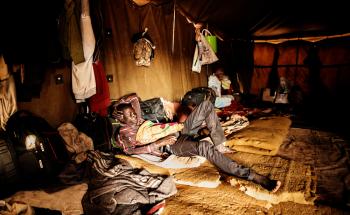
Civil society organisations welcome High Court ruling affirming the right to safe and unhindered access to healthcare
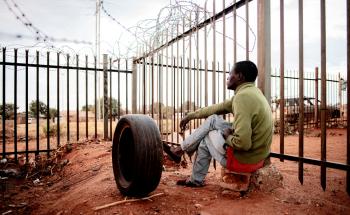
Organisations call for action against unauthorised obstruction of healthcare facilities
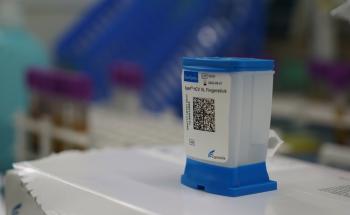
MSF Warns of Consequences as Funding Cuts Threaten Fight Against AIDS, TB and Malaria
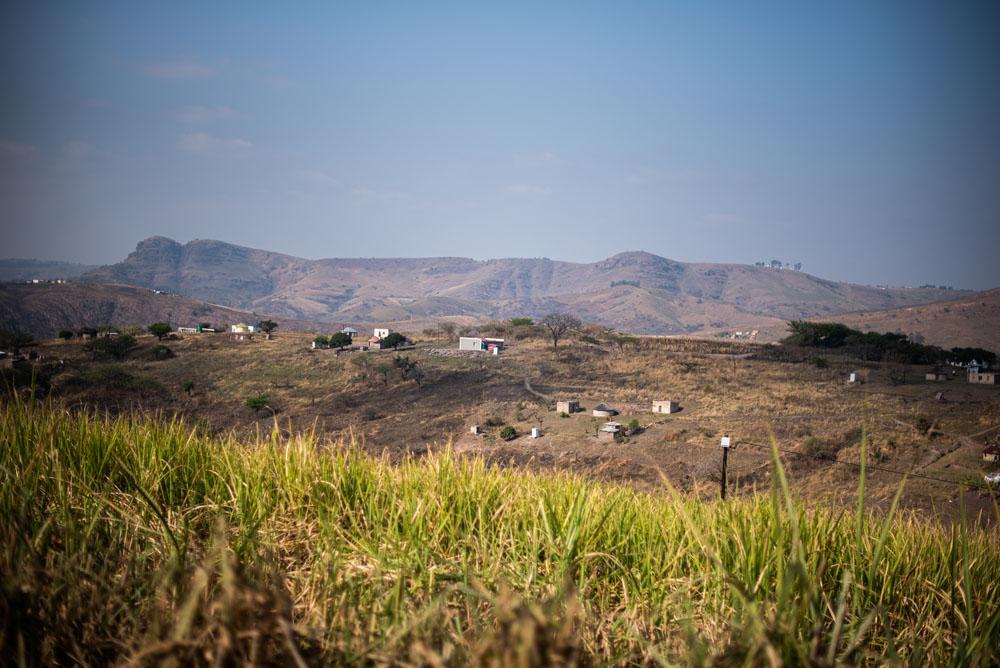
MSF Southern Africa Annual Financial Statements 2024

